AAMA Member News
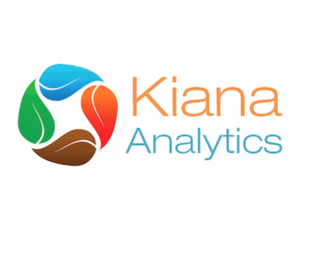
Kiana Analytics Named Hottest Company by Plug and Play Tech Center
Location-Based Analytics Startup Recognized for Rapid Growth and Deployments Worldwide
SUNNYVALE, Calif. – August 8, 2016 – Kiana Analytics, a global manufacturer and retailer of affordable luxury jewelry and accessories, a leading designer of luxury accessories and lifestyle brands, a national chain of liquor stores, the location-based analytics company that converts visitors to buyers, announced today that world’s largest startup accelerator, Plug and Play Tech Center, named Kiana the Hottest Company for July 2016. The award recognizes Kiana’s rapid company growth fueled by the addition of dozens of customers worldwide, including, San Pedro Square Market, Bobbejaaland Amusement Park, and many others. The jump in bookings has led to the company’s annual recurring revenue increasing 30x in 2H 2016, compared with 1H 2015.
“Plug and Play chose Kiana Analytics as the Hottest Company because their business is already validated by a number of large companies that are actively piloting or paying for their services. They have demonstrated value across verticals and the ability to scale globally. Kiana is also led by veteran entrepreneurs with a record of successful outcomes. The team is unique in both their level of internal collaboration and in securing several impressive partnerships at an early stage,” explained Jackie Hernandez, VP of Operations & Customer Engagement, Plug and Play Tech Center.
The selection for Hottest Company is based on growth, experience, leadership and execution, as well as relevance for high-demand applications that leverage advancements in mobile, IoT and machine learning. An internal committee of several members of The Plug and Play Management and Ventures Team considered 360 startups in their portfolio before naming Kiana Analytics the Hottest Company for July.
“Demand for our real-time location services engine has skyrocketed as companies across sectors look to better understand the behavior of visitors in their stores, shopping centers, stadiums or parks. We have seen customer engagement grow by 6x in just one year as the volume of devices our services have detected increased more than 500 percent,” said Kiana Analytics CEO Nader Fathi.
“Plug and Play’s award is a testament to this rapid growth, as well as our differentiation in the market. The Kiana platform is real-time, fully device and hardware agnostic, and highly accurate – capturing visitors within four square meters.”
About Plug and Play Tech Center
Plug and Play Tech Center is the world's largest global technology accelerator and venture fund. Since inception in 2006, our program has expanded worldwide to include entrepreneurs from 24 countries, providing necessary resources to succeed in Silicon Valley. With more than 400 startups and 100 corporate partners, we have created the ultimate startup ecosystem. Plug and Play provides active investments with 180 leading Silicon Valley VCs, and more than 365 networking events per year.
Companies in our community have raised more than $3.5 billion in funding, with successful portfolio exits including Danger, Dropbox, Lending Club, PayPal, SoundHound, and Zoosk.
About Kiana Analytics
Kiana Analytics provides cloud-based customer analytics software and patented device detection for operations and proximity marketing. Retailers, shopping centers, restaurant chains, event venues and other businesses worldwide use Kiana’s real-time location services (RTLS) engine and data to identify and understand WiFi-enabled foot traffic and showrooming behavior, measure and improve operations, strengthen on-site security and execute real-time targeted campaigns and offers that increase customer loyalty and sales. Founded in 2013, Kiana Analytics is a fast-growing VC-financed company with offices in Silicon Valley and Germany. To learn more, visit www.kiana.io or follow us on Twitter @KianaAnalytics.
Media Contact
Liza Colburn
Crescendo Collaborative Comm. +1.781.562.0111 liza@crescendocc.com
- AAMA Silicon Valley
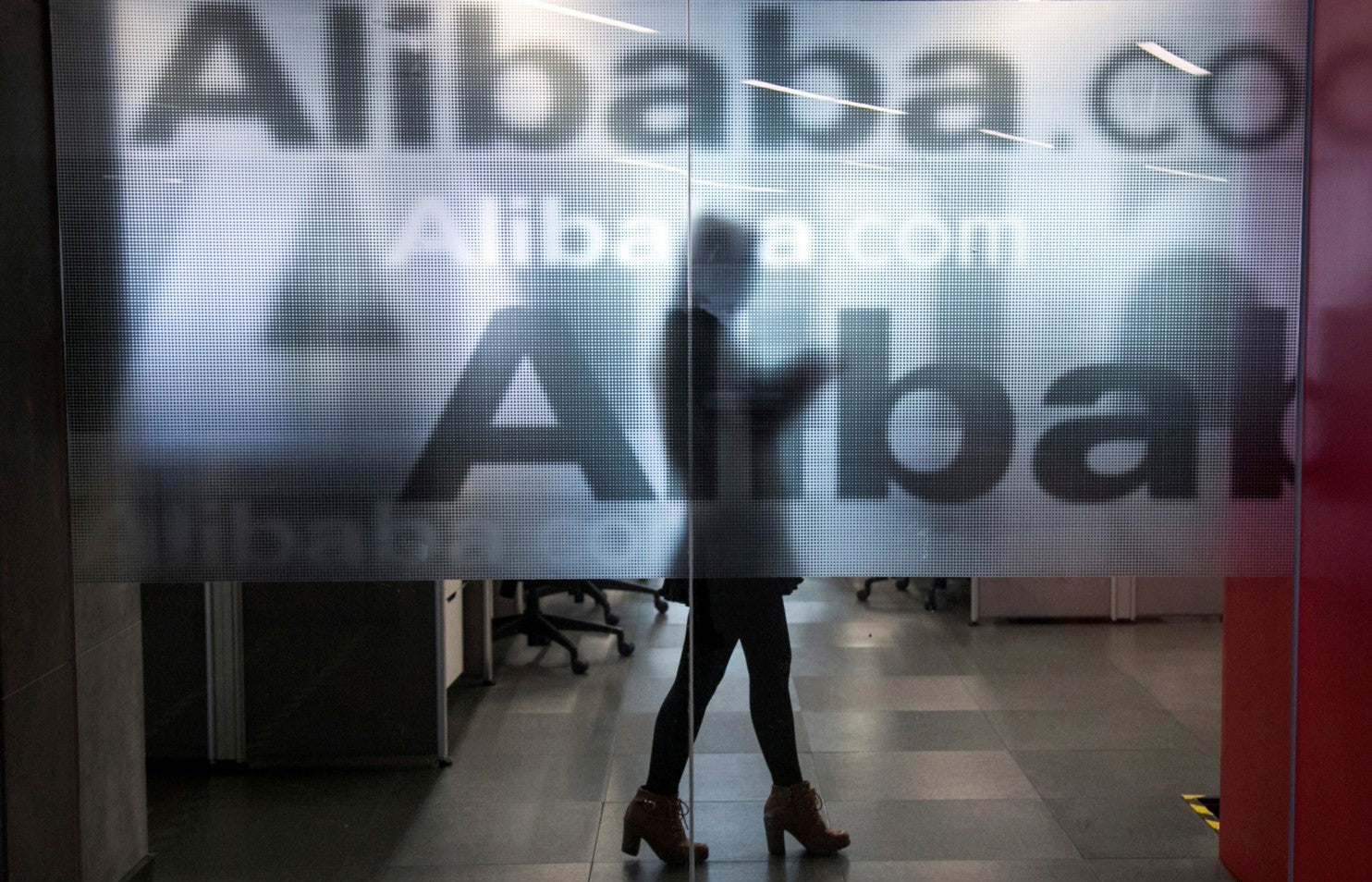
China is flooding Silicon Valley with cash. Here’s what can go wrong.
SAN FRANCISCO — Mountain View, Calif., start-up Quixey was the envy of many in Silicon Valley when the company announced a multimillion-dollar investment from one of China’s largest and most powerful technology companies, Alibaba.
The $110 million deal — parceled out over two funding rounds in 2013 and 2015 — was the latest evidence that deep-pocketed Chinese investors would pay premium prices to get a stake in the region’s hottest young companies.
But then, something went very wrong: Alibaba stopped paying, according to people familiar with the matter. The start-up was left in the lurch, until Alibaba fired back with a hard bargain: We’ll give you a loan and you must promise not to sue. After a few breathless months of negotiations, Quixey went through with the new deal. The company said Thursday it had borrowed $30 million. Those funds came from Alibaba and others under terms that were worse than the original arrangement, the people said.
At the heart of the bitter, under-the-radar dispute between China’s online shopping powerhouse and Quixey, whose tech enables users to search within apps, is a culture clash — one that is emblematic of both the promises and the perils involved in Silicon Valley’s relationship with China. Experts say that relationship — always delicate, always mind-bogglingly complex — has reached a new inflection point, as unprecedented amounts of cash from China have poured into Silicon Valley.
The flood has had a profound effect on the region’s start-up boom. Over the past two years, Internet giants such as Alibaba, Baidu and Tencent — sometimes referred to as the Amazon, Google and Facebook of China — as well as dozens of private investors, family offices, local municipalities and state-owned enterprises have raced to capture a stake in the region’s cutting-edge technologies.
Investment from China into Silicon Valley, excluding real estate, topped $6 billion by the end of the first half of 2016, with more than half of that spending taking place in the past 18 months, according to the Rhodium Group research firm. Investors have been spurred by China’s growing wealth over the past decade and a government push to develop innovative technologies — particularly in areas such as virtual reality and artificial intelligence, where China still lags.
“China realizes it needs a role model to follow as the country is transitioning from manufacturing to innovation,” said Shoucheng Zhang, a celebrated Stanford physicist who started a $350 million venture capital firm two years ago to capitalize on the boom. “This is the new digital Silk Road.”
U.S. start-ups, for their part, are hungrier than ever for access to China’s cash-rich companies and newly minted millionaires, especially in light of a tighter fundraising environment in Silicon Valley. Chinese investors also can open doors to China’s billion-plus consumers for services and products that are facing a saturated market in the United States.
Such investments can alter the trajectory of a nascent company. “Start-up fundraising in Silicon Valley wouldn’t function without Chinese money,” said Chris Nicholson, chief executive of two-year-old artificial intelligence company Skymind.io, which has received funding from Tencent and other Chinese investors. Start-ups that have been rejected from the clubby venture capital world on Sand Hill Road can still get cash from China, he said. “It has changed the landscape.”
But there is also distrust on both sides. U.S. start-ups are wary of hardball tactics and the power that some Chinese players have come to exert. Some have raised concerns about their innovations being copied, which has been a long-standing concern for many U.S. corporations partnering with Chinese firms. As newcomers, Chinese investors don’t want to be disrespected or treated as naive, or as so-called dumb money, according to executives who work closely with them.
In interviews, U.S. entrepreneurs said that Chinese investors often play by unfamiliar rules. Quixey learned that the hard way.
Shortly after the company got its first round of financing from Alibaba in 2013, Quixey began doing custom work for the Chinese conglomerate under a separate contract, building specialized technology that would enable Chinese consumers to search inside Chinese apps in Alibaba’s operating system, YunOS. (Searching within apps is very different, technologically speaking, from searching on the Web; even Google has failed to crack the problem.) The deal stipulated that Alibaba and Quixey would share revenue from any profits Alibaba made off using the company’s technology in China, according to people familiar with the matter who spoke on the condition of anonymity to talk freely about private events.
By early this year, a dispute had arisen. Alibaba claimed that the start-up had fallen behind on its deliverables; Quixey claimed that Alibaba owed the company tens of millions of dollars for work rendered for several months, the people said.
Meanwhile, the expected revenue from Alibaba’s distribution in China never came, according to one of the people. Alibaba became frustrated that Quixey wasn’t diversifying its revenue streams, another person said. At the same time, Alibaba went through a large organizational shake-up, and start-ups that attempted to work with the company, including Quixey, felt they were getting bounced around by a dizzying array of politics and priorities, several people close to the matter said. The problem was compounded by language barriers, they added.
Quixey considered suing Alibaba, but decided it wouldn’t be worth it, the people said. Few start-ups can afford a costly lawsuit against their main customer and investor. The tumult led to missed revenue targets and the departure of key executives, while the company’s founder stepped down as chief executive.
“We do, of course, value our relationship with Alibaba — they’ve been an integral partner and investor,” said Quixey spokesman Scott Samson. He declined to comment further.
Alibaba declined to comment, citing a policy of not discussing current investments.
Quixey aside, many investors said the Silicon Valley-China relationship, while full of opportunity, is also rife with cultural misunderstandings. Many partnerships fall through as a result, said Jay Eum, managing director at TransLink Capital, a Palo Alto, Calif.-based early stage venture capital firm that specializes in helping start-ups work with Asian technology conglomerates. (Eum’s firm is an investor in Quixey, but he said he was speaking generally.)
“While the promise of a China partnership is exciting and looks good on paper, the actual reality requires trade-offs,” Eum said.
In China, where there’s less rule of law, a powerful government relentlessly pushing for growth, and enormous competition among companies, brass-knuckled business tactics are more common, said Thilo Hanemann, an economist at the Rhodium Group.
“Sometimes these tactics are not misunderstandings but reflections of cultural norms of how business is conducted in China. The Chinese investor may ask for terms that would be considered overly aggressive in Silicon Valley, but these terms would be considered fair in China,” said Connie Chan, a partner with the venture capital firm Andreessen Horowitz who focuses on China.
It’s not uncommon, for example, for an investor to take ideas from one start-up and then turn around and invest in a rival, experts said.
Nicholson, the Skymind.io chief executive, said many U.S. start-ups cannot afford to walk away from a bad deal. “As a founder, your job is to keep your baby alive, so you can’t always afford to ask too many questions when someone comes along with terms that might not be perfect,” he said, while emphasizing that his own experiences with Chinese investors had been extremely positive.
Overall, entrepreneurs and investors said Chinese investment had opened many new doors. For CloudFlare, a Web performance and security start-up that had pulled out of China in 2011, an unusual partnership with Baidu in 2015 put the company’s technology in the hands of millions of Chinese consumers. For Artsy, an online art marketplace, investors from China helped the company grow its market in Hong Kong. Magic Leap, a virtual reality darling that received a large investment from Alibaba this year, was invited by Alibaba to give a keynote presentation in front of hundreds of Chinese engineers at the conglomerate’s Maker’s Fair in Shanghai.
Chinese investment in Silicon Valley stretches back at least three decades. But 2014 is considered a tipping point. That year, deals began to rev up in a big way: Chinese investors took part in 101 deals — more than triple from two years earlier, according to the research firm CBInsights. The actual number is likely to be larger since many investments aren’t made public.
Like the U.S. real estate industry and the bond market, Silicon Valley has been the target of growing classes of Chinese uber-rich who are looking for opportunities to grow their wealth outside the country. Recent instability has pushed money out of the country even more quickly, according to Rhodium.
Alibaba’s spending spree has included $795.5 million in Magic Leap, $500 million in the e-commerce site Jet.com, along with unspecified multimillion-dollar investments in Snapchat, ride-hailing service Lyft and e-commerce start-up Shoprunner. Last year, Baidu led a $1.2 billion fundraising round in Uber and put the finishing touches on a glossy new Silicon Valley campus — a move intended to anchor the company’s growing number of investments in the region and attract engineering talent that is still hard to come by in China. Tencent, which owns WeChat, the most popular messaging application in China, has a quieter presence, investing small amounts in hundreds of companies and vetting technologies in the areas of gaming, mobile money and artificial intelligence.
“We’re looking at companies that provide strategic value to us — and building cool new technology for the China market,” said Alex Tze-Pin Cheng, general manager of Baidu U.S. Like other Chinese investors, Baidu has developed ties to the influential venture capitalists on nearby Sand Hill Road, Cheng said.
Fyusion founder Radu Rusu, whose recent deal will put his company’s 3-D photography technology on millions of Huawei smartphones, said the arrangement would be transformative for his 40-person start-up. Like other founders who had Chinese investors, he said it was remarkable how quickly a deal went down. “Definitely much faster than any U.S. company I’ve dealt with,” Rusu said. “They were very aggressive — like there’s no time to waste.”
In the near term, Quixey and Alibaba are patching up their disagreements. The start-up has built new technology to search within apps and is talking to a fresh set of potential customers and partners, people familiar with the matter said.
Quixey is no longer building technology for Alibaba.
- AAMA Silicon Valley
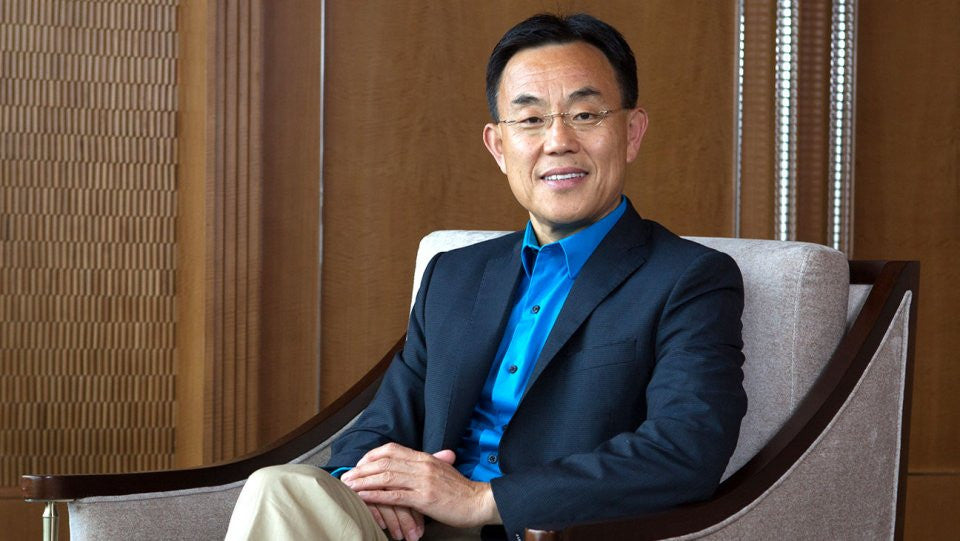
The THR 100: Hollywood Reporter's Most Powerful People in Entertainment
38/100
Jack Gao
Group Vice President/CEO, International Investments and Operations
Wanda Cultural Industrial Group
One of Dalian Wanda Group chairman Wang Jianlin's trusted deputies, Gao, 57, was instrumental in negotiating Wanda's $3.5 billion acquisition of Legendary Entertainment, which marked the first time a Chinese company had bought a U.S. studio responsible for global tentpole productions. His cross-border acumen has helped inspire the next generation of Chinese business leaders; his 2003 book Experience Microsoft, about his tenure at the company, was a popular read among China's tech community. If Wanda ever makes a play for one of the six U.S. studios, as many have speculated it someday will, Gao will be at the negotiating table.
BIG WIN Legendary's first release under Wanda, Warcraft, opened to $156 million in China, more than six times its U.S. debut.
BIG BET Wanda's Qingdao Oriental Movie Metropolis, a $10 billion wager that China will be a hotspot for production and distribution, is set to open in 2018.
***
I can't get through a day without …
An 8-mile run every morning.
Who's your most important adviser?
Chairman Wang.
What's your hidden talent?
Ability to combat jet lag in no time.
If I could have lunch with anyone, living or dead, I'd choose …
Henry Kissinger.
What is your go-to meal at your commissary?
A cookie to go. I’m always on the road so the world is my commissary, and unfortunately, I usually start with the wrong side: the sweets.
- AAMA Silicon Valley

好莱坞最有权力100人名单,唯一上榜的中国人居然是他!
好莱坞最有权力100人名单,唯一上榜的中国人居然是他!
近日,《好莱坞报道者》中评选了好莱坞最有权力100人,迪斯尼总裁鲍勃•伊格位列榜首,万达高群耀是唯一上榜的中国人。
高群耀
位列榜单不仅有传媒大亨默多克、Netflix首席内容官泰德·萨兰多斯,还有导演斯皮尔伯格、演员“小李子”和大表姐詹妮弗·劳伦斯。这些人要么是大片场的老板和娱乐公司的首脑,要么是好莱坞打拼多年的导演和演员,都有拥有超高的专业素质和享誉全球的知名度和影响世界电影格局的能力。
而高群耀之所以能跻身该榜单,不仅是因为他现任万达文华产业集团国际事业部总裁一职,更是因为他此前主导了今年初万达收购传奇影业的谈判。
万达收购传奇影业签约仪式
这是2016年国内影视行业第一起投资并购案。外界表示,这对于好莱坞电影大规模进入中国开辟了一条新的道路,同时也提升了中国在全球电影界的力量。
一、逆风而行——从欧特克到微软
高群耀1958年生于黑龙江省,是恢复高考后的首批大学生,在哈尔滨工业大学获得工程力学的学士和硕士学位。
1985年赴美国留学,并取得工程力学博士学位。1989年至1990年,任美国CSAR公司产品开发部产品经理;1992年任美国洛杉矶MSC/PDA公司部经理。
1994年,在美国Autodesk公司工作,任大中国区总裁,负责中国大陆、香港、台湾和蒙古的业务。
1999年至2002年,担任微软(中国)公司总经理,半年后兼任总裁。
高群耀任职微软的时候,各种霸权指责笼罩公司,加上“亚都”案的败诉,微软在中国的舆论形象几乎降至冰点。微软高管纷纷离职,打工女皇吴士宏在加入微软仅1年多后就选择了离开。
高群耀上任后换了一批新的领导班子以填补职位空缺。任职两年,微软中国许可证销售业务增长80%,微软中国的销售额是之前的2.5倍。
但是微软中国的问题之多,情况之严重,大大出乎高群耀的预料。因为它太庞大了,多重层级阻碍了信息的有效传递,每一个决定都要经过复杂审批,这使得办事效率极为低下。
虽然二十一世纪初中国经济高速发展,却无法使微软获得与其市场地位相匹配的待遇。
2002年,高群耀以“追逐事业发展新机遇”为由离职。
“我至今还确信,有些事情是永远不会有精力介入的。微软的事务太多了,微软实在太庞大了,而对于一个营业额小到几乎可以忽略的中国地区来说,它的问题实在是无法让他顾及到。”离开微软后,高群耀坦言自己在任职期间面临的棘手问题。
也有外界猜测,此次离职与微软大中华区总裁黄存义存在不和,以及同年微软在北京市的政府采购竞标中落选有关。
在历任的微软大中华区CEO中,很多人认为高群耀夹在吴士宏和唐骏两人之间,显得有点尴尬。与前任相比,低调的高群耀不像吴士宏那么光彩照人,可以吊足传媒的胃口;与继任者唐骏相比,高群耀时代的微软中国是个弱势群体,作为总经理,他手中的话语权也与唐骏无法相提并论。
员工对他的评价是坚忍和尽责。
2002年,高群耀担任美国著名的、总部设在加利福尼亚的风险基金公司——华登国际投资集团(Walden International)合伙人兼中国区总裁,负责其在华(科技、媒体及电信)领域的投资。
2003年至2006年,高群耀重回Autodesk公司。
“它就像大象身旁的小猴子”,高群耀曾这样形容Autodesk与微软的悬殊。
高群耀上班第一天,公司成立了“中国特别事务委员会”。这个委员会包括公司总部高层(CEO、COO、全球销售副总裁),委员会成员每季度重新评估中国的业务,每年在北京进行年度回顾。这使得中国管理层与总部最高管理层之间的直接沟通以制度化的形式确立了下来。
二、加入新闻集团——“我并没有转行”
2006年末,高群耀加入新闻集团,担任新闻集团全球副总裁、星空传媒(中国)首席执行官。
默多克与新闻集团
任职8年间,高群耀一直强调自己在做IT、互联网、电信、传媒的整合。为了应对传媒变革,2011年,新闻集团曾大力推出《the Daily》iPad杂志,并采取收费策略。但是,尝试了22个月之后关闭。
对于《the Daily》之死,高群耀认为,《the Daily》是试水新媒体的尝试,尽管关闭,但新闻集团的尝试并没有结束,只是方式会有不同,“大家都得用不同的方式来摸索、尝试,看我们专业化的内容它的商业模式会是在哪里。”
不过近20年来新闻集团在中国的曲折拓展,使得新闻集团董事长默多克对中国市场失去耐心。2013年10月,新闻集团清除所持凤凰卫视的股份。2014年新闻集团卖掉其所持星空传媒47%的股份,新闻集团在中国的业务也逐渐关闭。
2014年,高群耀担任贝森娱乐传媒集团(Bison Entertainment & Media Group)联合创始人和CEO。
从IT界和传媒界,再到自己创业,高群耀用“我没有改行,是行改了“这样的回答定义了自己的职业变化。
“竞争格局在发生着变化,原来的改变是高科技带来的生产效率的变化,今天则是数字化革命对商业模式的颠覆。”
两年后的今天,互联网公司的媒体广告收入已经超过传统媒体公司;在中国,以BAT为首的互联网公司正在通过收购和并购大力布局传媒生态格局;逻辑思维的社群经济、papi酱的广告拍卖……开创了传媒与互联网结合的新商业模式。这一切是否意味着我们对媒体的观念也要发生根本性的改变?
三、在万达收购传奇影业中一战成名
2015年4月,高群耀加入万达集团,任万达文化产业集团副总裁兼国际事业部首席执行官,主要负责国外业务。
在这个时间节点不久,万达院线公布了“老臣”叶宁的辞职消息。有人怀疑是因为高群耀的排挤。
叶宁
据称,在万达2015年的工作总结会上,王健林称:“集团要对院线、影视、发行三家公司以及分管副总裁叶宁的出色工作提出表扬。”然而,王健林刚刚表扬完叶宁,他怎么就走了?
不过叶宁在后来的采访时对受排挤的传言予以否认:“我离职的真实原因,是我个人职业生涯的选择,没有大家议论中提到这些复杂的东西。Jack(高群耀)是我很多年前的朋友,可以说,他来万达之前在万达最熟悉的人就是我了,他原来很多电影上的事情都会咨询我的意见。我觉得在万达里,每个人都非常有愿景,工作职责很清晰,所以不存在‘他来了,我走了’的情况。”
今年1月,万达集团正式宣布耗资35亿美元100%收购美国好莱坞中型制片公司传奇影业。签约当天,作为万达文化集团副总裁的高群耀和美国传奇影业公司首席法务顾问马蒂·威特上台签约。在王健林看来,这是电影史上,中国企业在外国的最大一笔并购投资。
传奇影业成立于2004年,是好莱坞一家中型制片公司,主要靠华尔街的各路资本支持,擅长电影融资和制作,先后背靠华纳和环球这两家大公司作为发行方,倾向于制作大预算、以特殊效果为主的电影,包括电影、电视、数字媒体以及动漫等业务。曾出品《蝙蝠侠:黑暗骑士》等大量高票房电影,还参与出品《侏罗纪世界》和《盗梦空间》等影片,全球累计票房已超过120亿美元。
不过,也有人估计,由于目前好莱坞业绩的整体下滑,传奇影业很难参与进去一些优质项目,所以投资风险很大。而且,传奇影业已经连续2年巨亏。万达这笔收购,到底是赚还是赔,这很难说。
高群耀多年的职业经理人生涯,一共经历过默多克、卡罗尔•巴茨、比尔•盖茨、王健林这些老板。每一个都是业界举足轻重的人物。
在一次采访中,他给出了前三人的共性:好奇心强、判断敏锐、愿意倾听年轻人说话、执着不放弃。这些品质这或许也是他对自己的期望和评价吧。
而现任老板王健林,对于高群耀来说与其他三人又有什么不一样?这可能要过一段时间才能为公众所知。
参考:
http://tech.163.com/api/16/0117/11/BDHFCM6R000915BF.html
http://biz.ifeng.com/business/auto/detail_2014_06/20/2465320_0.shtml
- AAMA Silicon Valley
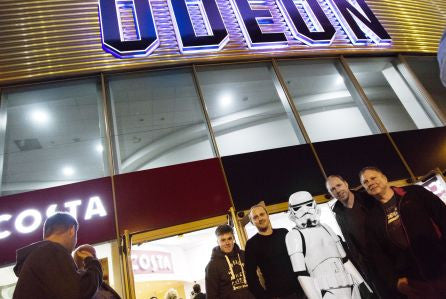
How Quickly Will Local Movie Theaters Go Global Following AMC-Odeon Deal?
AMC Theatres has a message today for those who thought that the UK’s Brexit vote and Donald Trump’s success in becoming the GOP’s presumptive presidential nominee indicated that globalization has run its course.
Wake up and smell the popcorn.
AMC’s $1.2 billion cash and stock agreement to buy Odeon & UCI Cinemas — which, if approved by European antitrust officials, would make it the world’s largest exhibition chain — illustrates how quickly and easily capital continues to slosh across borders.
Indeed, the trend is so powerful that we’re now seeing the internationalization of one of media’s most local businesses: movie theaters.
A handful of global consolidators are poised to drive these transactions. They offer the deep pockets and scale needed to keep up with ticket buyers’ rising expectations for comfort and concessions, new projection technologies, challenges from Netflix and other home entertainment providers — and Hollywood.
“The industry is already fairly consolidated with six major studios,” Imax CEO Rich Gelfond tells me. “But there are hundreds of exhibitors. And the exhibitors I’ve talked to think that to compete in a global business, and go toe-to-toe with the studios, they need to have global reach. This is only the beginning of that trend.”
AMC is at the center of exhibition’s new world. The USA’s No. 2 exhibition chain is 75% owned by Wanda Group, the leading theater owner in China. AMC appears to be a vehicle for Wanda to expand globally without being subject to Chinese government controls and capital restrictions.
Others also are poised to become global leaders. The list of potential consolidators includes South Korea’s CJ-CGV (which just acquired Turkey’s biggest chain, Mars Cinema), Mexico’s Cinepolis (the world’s No. 4 chain) and UK’s Cineworld Group.
Dealmakers must tread lightly into cross-border acquisitions, though. Distant executives have often found that they offered little to local theaters. Venues thrive when managers understand cultural nuances that influence what movies their neighbors want to see, and what concessions they want to buy.
Consolidation “has been something that exhibition conglomerates have been doing, not necessarily successfully, since the ’90s,” one studio executive says.
But the rationale for deals becomes more compelling as Hollywood loads up on movies designed to appeal to global audiences. International markets accounted for 71% of the total box office in 2015, up from about 64% in 2006.
AMC and Wanda were quick to appreciate that size matters when dealing with giant studios and other service providers.
Although the exhibition operations are separate, “when we go to Hollywood we can go to Hollywood together,” AMC chief Adam Aron told investors today. “When we talk to vendors we can talk to vendors together. …We’re going to play an important role in the world’s movie theater industry.”
Wanda also can approach studios as a colleague. In January it paid $3.5 billion for Legendary Entertainment, which helped to make films including Straight Outta Compton, Jurassic World, and The Dark Knight Rises. This was the largest cross-border cultural acquisition by a Chinese company.
Wanda hopes to command 20% of the worldwide box office, a plan that’s “very much on track,” says Jack Gao, who’s VP of Wanda Cultural Industry Group and Head of Wanda Film Holdings.
AMC also brings a playbook to help exhibition venues stand out in a business where everybody offers the same movies with similar ticket prices.
The Kansas City-based company took a gamble in the U.S. when it spent heavily to install plush recliner seats, build large screen venues (it’s the leading domestic owner of Imax theaters), and upgrade concessions.
That paid off as customers willingly paid higher ticket prices for the superior entertainment and comfort.
AMC’s success forced risk-averse U.S. competitors to accelerate their spending plans. It’s one reason Carmike cried “uncle” in March, accepting AMC’s $1.1 billion acquisition offer — which some large investors say is too low. (They’ll vote on the deal this Friday.)
Carmike management told shareholders that the nation’s No. 4 chain “features theaters which, because of their age, will require greater levels of go forward investment relative to the circuits of Carmike’s peers.”
Aron says the strategy will work at Odeon & UCI’s theaters as they become “a first mover in Europe” for major upgrades.
That might lead small exhibition companies in the continent to decide, as Carmike did, that it’s time to look for an exit.
“If you look at the multiplex of the future, you’re going to have to put capital into it,” Gelfond says.
Local theaters will have to look for cash. And, as AMC showed today, money not only talks. It’s multilingual.
Contributing: Nancy Tartaglione
- AAMA Silicon Valley
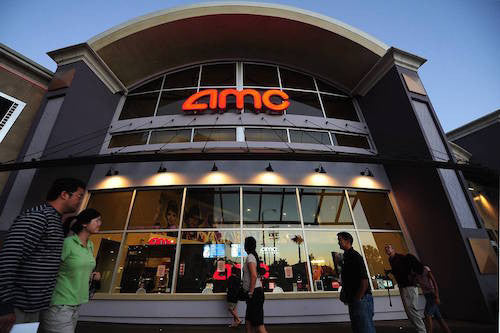
Wanda’s AMC to Buy European Theater Chain
Deal, helped by a weaker British pound, would make AMC the largest movie-theater company in the world
By ERICH SCHWARTZEL
Wall Street Journal
China’s Dalian Wanda Group Co. made it clear Tuesday that it plans to become the world’s largest movie-theater company one way or another.
In one of the first major deals to take advantage of the weaker British pound, Wanda’s AMC Entertainment Holdings Inc. said it was acquiring Europe’s largest cinema chain, Odeon & UCI Cinemas Group, for £500 million ($650 million).
AMC is awaiting a shareholder vote this week on a separate deal to buy U.S. rival Carmike Cinemas Inc., but that deal faces resistance from major Carmike investors.
Negotiations between Wanda and Odeon date back to 2013, but a decades-low exchange rate brought on by the U.K.’s decision last month to leave the European Union sealed the deal, said AMC Chief Executive Adam Aron.
“We’re certainly not going to be the last [major acquisition],” he said. “There may even be a stampede of U.S. acquirers looking at the United Kingdom.”
AMC is buying Odeon from Guy Hands’s private-equity firm, Terra Firma Capital Partners Ltd., in a deal valued at about £921 million, including £407 million in debt. The deal is 75% stock and 25% cash.
Odeon will remain based in London and keep its brand name. The acquisition is expected to close in the fourth quarter of the year following antitrust review by European regulators.
Mr. Aron said AMC and Terra Firma started the latest round of tie-up talks in March. There was an agreement in place in June, but talks paused as the Brexit vote neared and both sides awaited the outcome, he said.
After the vote sparked turmoil across global markets, AMC and Terra Firma restructured the deal to make £125 million of Terra Firma’s payout come in the form of AMC stock to share risk.
The transaction, if completed, should give AMC the reach to negotiate global deals with contractors, such as in-theater technology companies IMAX Corp. and Dolby Laboratories, as well as Coca-Cola Co., said Mr. Aron.
AMC plans to integrate some of its more successful U.S. concepts, such as recliner seating and expanded food-and-beverage options, into Odeon theaters.
Since Wanda purchased AMC for $2.6 billion in 2012, the Chinese conglomerate has steadily expanded its global theater footprint. In 2015, Wanda bought the Australian cinema chain Hoyts Group for $344 million.
The Odeon deal continues Wanda’s quest to become a global culture conglomerate, said Jack Gao, head of Wanda Film Holdings Co. Wanda’s chairman, Wang Jianlin, has set a goal of eventually owning theaters that bring in 20% of the world-wide box office, said Mr. Gao.
Wanda has also been on the hunt for Hollywood holdings beyond film exhibition. In January, Wanda bought “Jurassic World” financier Legendary Entertainment for $3.5 billion.
Odeon’s 242 theaters and 2,236 screens across several European countries would make AMC the largest film exhibitor in the world—a title the Carmike deal was already poised to bring it.
AMC, based in Leawood, Kan., said in March it was acquiring Carmike for $1.1 billion, or $30 a share.
But major Carmike shareholders balked at the price, with some alleging AMC was undervaluing their company by at least $10 a share, and on Tuesday saying the economics of the Odeon deal further proved that Carmike was undervalued. A vote to approve the acquisition was scheduled for early July but postponed until this Friday.
In New York trading Tuesday, news of the Odeon acquisition sent AMC stock up 7.3% to $29.80. Carmike shares rose 2.2% to $30.39.
AMC is the second-largest movie theater chain in the U.S., and Carmike is No. 4. A tie-up between the two is considered the biggest possible deal in the U.S. movie-theater industry due to antitrust rules.
Mr. Aron said AMC has “not yet” taken Carmike a more generous offer than its $30 a share price. The companies are talking, but “right now we don’t have an agreement,” he said.
“Given that we have Odeon now, we don’t have to do both of these acquisitions,” Mr. Aron said.
—Austen Hufford
contributed to this article.
Write to Erich Schwartzel at erich.schwartzel@wsj.com
- AAMA Silicon Valley







